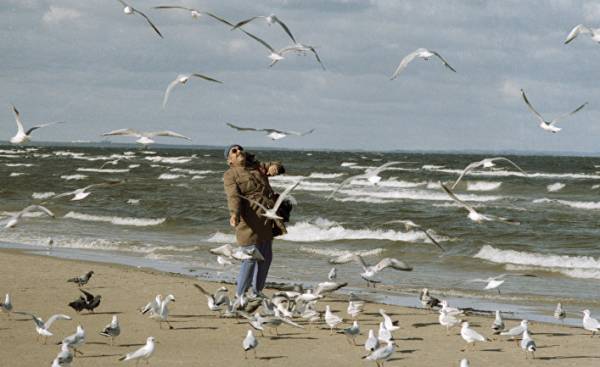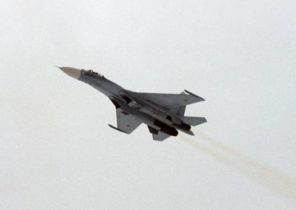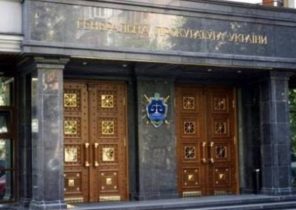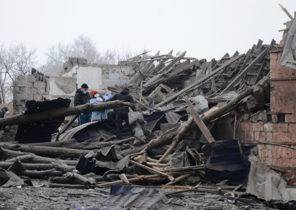
The coast of Jurmala from all sides blows the cold wind. It’s the middle of June, but on the main tourist Jomas street is crowded. Amusement ride owners are apathetic lead to a sense of their technique, the sellers resort to consumer goods wrapped in jackets and sadly looking somewhere into the distance: it’s hard to believe that their dolls and amber trinkets someone will ever buy. With posters on the streets of the city looking half-forgotten faces of mostly Russian singers and comedians. This picture is a little bit not fit with the media image of the most wealthy and prosperous Baltic sea resort, which, thanks to Russian television took decades to build.
Of course, to do conclusions on the first cursory impression of silly: after all, the tourist season doesn’t start for another week and a half, the weather could change the temper justice with mercy, and the feeling of emptiness will change to something more meaningful.
But the last two years reasons for excessive optimism was not here. The media regularly wondered survive Jurmala and the nearby resorts of the scandalous treatment of three major Russian festivals and thousands of tourists that brought the city huge profits. Usually, the answer to this question vary greatly depending on the ideological orientation of the media, but the consensus was that, one way or another, fallen on hard times. The gap with the Russian entertainment industry the story is much deeper than it might seem at first glance, and is rooted in the Soviet past.
Latvia, Lithuania and Estonia is often called the all-Union health resort, the European showcase of the Soviet Union, but in fact it was more of a buffer zone between the capitalist and Communist worlds. For Soviet citizens “tourism in the Baltics” was perhaps not the most elite way to spend your vacation, and the three Baltic States were perceived rather as foreigners, though, and in fact was part of the Union. From there, vacationers under permits from across the country carried advanced technology, fashionable clothes, records, chewing gum, cigarettes, magazines and erotic all that was lacking in ordinary Soviet stores.
“Tourism in the Baltics” for many became almost the main adventure and experience in life, formed a special holiday tradition, which naturally caused a terrible power of nostalgia. And even after the proclamation of independence of Latvia, Lithuania and Estonia of the Baltic coast remained one of the main destinations for Russian tourists. In a sense, the main product of this area, in addition to sea and sun were just warm feelings and memories of those who have been here already and returned by inertia again and again. Naturally, the entire infrastructure and the environment has been focused on the maintenance of this nostalgia, which from year to year successfully monetizirovat.
In this context, the sharp decline in the number of Russian tourists — not the oligarchs and politicians, and ordinary people — this story is not only about overcoming the Baltic countries of the Soviet past, but also about overcoming nostalgic tourists of their memories and warm feelings. And the question is why it happened — because of the political confrontation, lack of money or something else — remains open.
How has the tourist
The Gintautas recalls the owner of the restaurant “Pig Paradise” and guest houses on the Lithuanian coast in the town of Sventoji. He is always smiling, speaks softly and often jokes about himself, his business and people he encountered. Recalls graduated from Kaunas Institute of physical culture and had to learn basic military training or become a PE teacher. But in 1990, life began to change rapidly, started privatization, and all the hopes on the state and the fact that someone will give a flat, work and well-being, disappeared. He understood that you have to spin to survive and feed her family. It so happened that a small pub, which was purchased by Recalls, was hardly the first element of private recreational infrastructure in Šventoji.
His stories about the early stage of Lithuanian capitalism at times reminiscent of the story about the Russian nineties, with all their devastation, kryshevateli and rekitirami. But he somehow survived this stage and calmly finished to the normalization of commodity-market relations. For a quarter century, business Rekasius has changed beyond recognition: now it looks very solid, from the old times were only the restaurant sign “Pig Paradise”. First, his friend drew a pig on the plywood and wrote something about beer, peas and pork leg are key elements in menu. Then Recalls from Holland, brought the cakes with pork, and it’s all very praised. But the owner was embarrassed that everyone went to “Pig’s foot”, but this was not a drop of poetry. Something had to change, has not yet caught on. In the end, by brainstorming was born the name “Pig Paradise”.
Recalls have a great sense of humor, he is always ready to pin the interlocutor, and it seems that the entire interior of his restaurant are murals depicting pigs, figurines and sculptures is also a joke on the visitors who dobivayutsya to the border States of consciousness. Such truth, according to him, every year more and less. He says that the tourists have changed as much as has changed the industry itself resort entertainment. Changed the culture, people drink less, but are more careful and demanding. He laughs, before joining the Schengen requests were quite trivial, strain especially and was not necessary — you can safely put plastic tables, and no one would didn’t blink. But after people have been around, looked at the service, their requirements have changed, and the industry of a resort had to change after them. Recalls laughs that the main criterion of these transformations is caused by the ability accurately to use the toilet.
Why not dance with balalaika
It so happened that in Šventoji always rested a lot of Lithuanians from the Soviet Union in this town all the factory teams had arrived on holiday, and after the Declaration of independence, the people by inertia continued to drive it here. Recalls just shrugs: young people have no sentimentality about “Baltic rest”, they go to Turkey, Cyprus, Malaga. There is nothing to catch sex tourists can only sell nostalgia, so the bulk of the older generation.
Business Rekasius not suffered from deteriorating relations with Russia and the mass Exodus of great number of fans. Of course, he bitterly says that Russian tourists has indeed become less stopped building houses, once started by the Russians. In restaurants almost stopped singing the Russian pop music — survive only some supercontinua hits and artists from Russia, if they come, it does not always collect hall. But Recalls laughs: if there was a bus with Russian tourists, there would be a dancing with the balalaika. Here only bus no. And it’s not political bullshit, and in the banal poverty: the Russians have less money. Though political tensions also affected: the regular customers, who came for ten years, I don’t want the extra stress and choose other directions.
Other resorts in the Baltic countries are experiencing a similar story: after the Ukrainian escalation, mutual exchange of sanctions and political scandals Russians actually become smaller. Someone went bankrupt, but the majority were able to adapt, now here come the Germans and the Scandinavians, domestic tourists on the campers and bicycles. This is a different type of tourists: they are more stingy, don’t waste money and often stay just for 3-4 days, trying to catch good weather. Naturally, this affects the revenue, but apparently not deadly.
In this context, as a good example of Jurmala times: according to recent statistics, after the big economic hole recreation industry began to emerge, and during the last winter the number of tourists there has increased by 31%.
— Our main sponsor — the weather is good, only here with this problem right now — laughing Recalls. He was not discouraged and believes that the sun will come out, and the government will pay attention to his industry. But hopes he doesn’t expect — the Rich will not, but hunger is not dead men!






